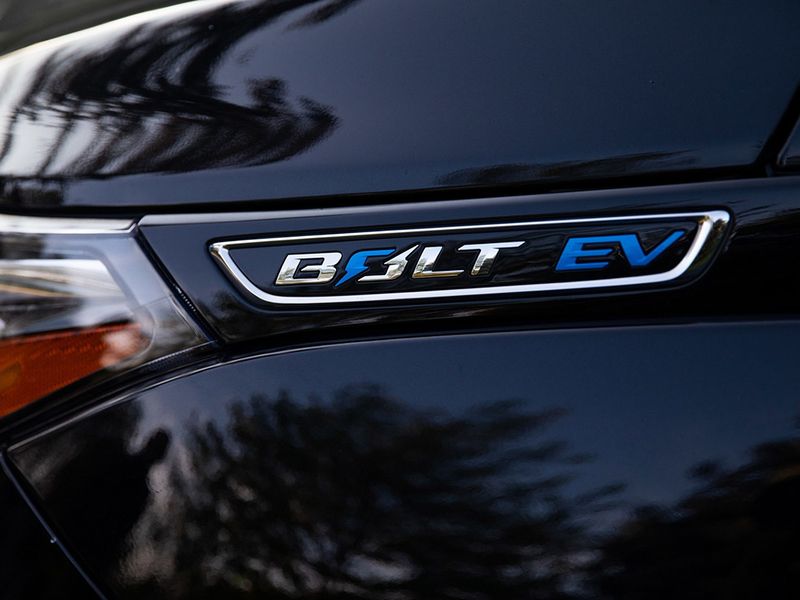
DETROIT– General Motors said it will soon lift charging, parking and range restrictions on Chevrolet Bolt EV and EUVs that have been recalled because of battery-fire risk.
Owners of 2019 Bolts who have not yet received battery module replacements can receive a software update from their dealership that will remove the restrictions starting Friday. The software will be available to owners of 2017-18 and 2020-22 Bolts within the next 30 days, GM said in an emailed statement on Friday.
The new software significantly reduces fire risk by automatically setting the vehicle’s maximum state of charge to 80 percent, spokesman Kevin Kelly told Automotive News. The software reduces vehicle range but eliminates the need to follow GM’s previous guidance. It allows owners to safely charge indoors overnight, park indoors after charging and operate their vehicles below 70 miles of range.
The software also includes diagnostics to detect specific abnormalities that might indicate a rare battery issue.
The recall includes more than 140,000 vehicles — every Bolt EV and EUV GM has built since 2016–and could cost up to $2 billion depending on the number of module replacements needed. Battery supplier LG Energy plans to cover the vast majority of the cost. The sweeping callback has been a black eye for GM as it prepares to launch its next-generation electric vehicles, powered by its proprietary Ultium batteries, different from the batteries in the Bolts. GM plans to roll out 30 EV models globally and invest $35 billion in electric and autonomous vehicle development through 2025.
Owners of 2019 Bolts who have not yet received replacement battery modules should schedule a service appointment with their dealer as soon as possible to install this software, GM said.
Owners of other model-year Bolts will receive a letter from GM when the software is available for their vehicles. GM advises them to follow its previously issued guidance in the meantime.
GM began replacing battery modules in 2017-19 Bolts last month. The automaker plans to run separate diagnostic software on 2020-22 Bolts to determine whether modules need to be replaced. That software is not yet available.
GM on Thursday said it would continue to idle production at Orion Assembly, where the Bolt is built, for the remainder of the year.
“This decision will enable us to continue prioritizing recall repairs. We will continue to inform employees at the appropriate time of any additional production schedule adjustments in early 2022, as we continue to focus on battery module replacements,” GM said in a statement.
The Michigan plant has been down since Nov. 15. It ran limited production during the first half of November to help optimize LG battery output and support customer and dealer needs related to the recall.

